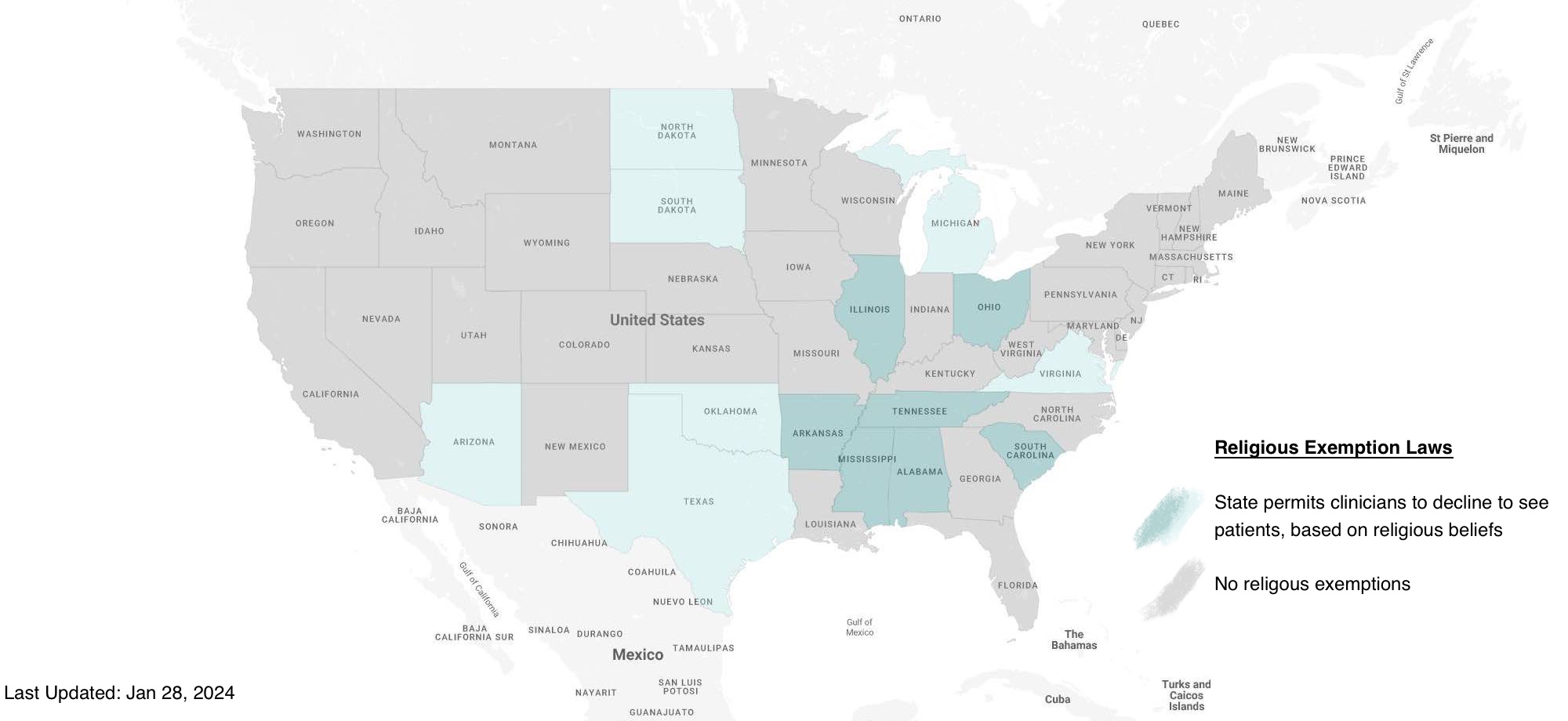USInterstateInteroperability - Local Development build (v0.6.7) built by the FHIR (HL7® FHIR® Standard) Build Tools. See the Directory of published versions
Religious Exemptions
The issue of religious exemptions for employees in the medical field, allowing them to opt out of providing certain types of medical care that conflict with their sincerely held beliefs, presents a complex and varied landscape across the United States. These exemptions, governed by state laws, reflect a delicate balance between respecting individual religious freedoms and ensuring patient access to necessary medical services. In some states, broad protections are granted to healthcare professionals who object to participating in procedures like abortions, euthanasia, or certain fertility treatments on religious or moral grounds. Other states, however, maintain more restrictive policies, emphasizing the importance of uninterrupted patient care and access to medical services. This state-by-state approach highlights the ongoing debate over the extent to which personal belief should influence professional responsibilities in healthcare, raising critical questions about the impact of such exemptions on patient rights, healthcare quality, and ethical medical practice.

Example Encoding
{
"resourceType": "Consent",
"policy": [{
"authority": "https://www.illinois.gov/",
"uri": "https://dph.illinois.gov/topics-services/prevention-wellness/immunization/religious-exemption.html"
}],
"provision": {
"type": "permit",
"purpose": [{
"code": "COC",
"display": "coordination of care",
"system": "http://terminology.hl7.org/CodeSystem/v3-ActReason"
}],
"provision": [{
"type": "permit",
"class": [{
"code": "Practitioner",
"display": "Practitioner",
"system": "http://hl7.org/fhir/resource-types"
}],
"code": [{
"text": "Declined",
"coding": [{
"code": "443390004",
"display": "Refused (qualifier value)",
"system": " http://snomed.info/sct"
}]
}]
}]
}
}